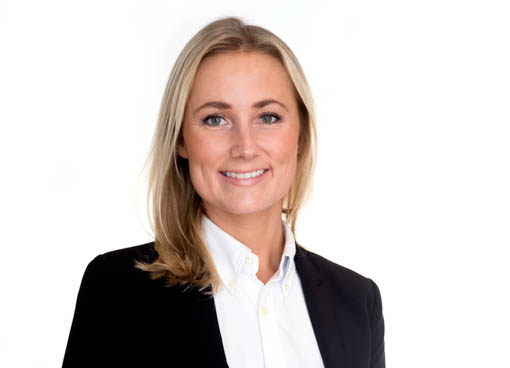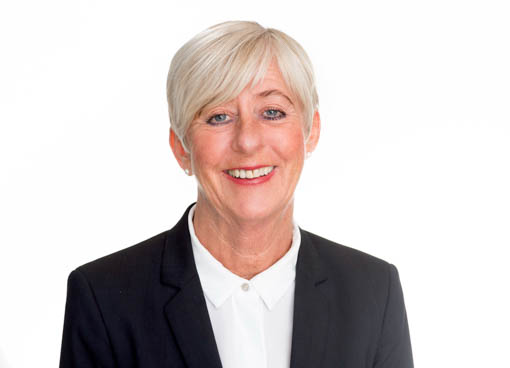Recruitment then and now
- Date published: 12.12.2022

How has the recruitment process and the recruitment industry changed over the last 5, 10, 20 years? We have had a chat with Capus partners Nathalie Backer Smulders and Grete Andersen. Nathalie has been in the recruitment industry for 8 years, while Grete has been in the business over 20 years.
Over these years we have undergone a great digital journey, recounts Grete. The period has seen a professionalization of the industry, and a move towards privacy focus, innovation with digital meetings with clients and candidates as well as new industry standards, such as certifications for quality and environmental work.
Even though I haven´t worked as long in this business as you, Grete, I must say there has been a tremendous change in recruitment. The profession has become much more of a trade.
Nathalie
Has there been any noticeable change in the competition in the market?
Clients´ expectations are higher. They require more qualified candidates for a position, and quality demands are much higher, including certifications to quality standards. This has required active work by Capus, which was the first Nordic recruitment company to be certified for ISO 27001 – information security. This means that we continuously work to ensure that both clients and candidates’ privacy is taken care of in a good way.
A new DNV-certification for recruitment personnel has been established, although it´s not yet widely adopted. Capus uses various testing tools for candidates that all have been DNV-certified. To be able to participate in public tenders, certifications for quality systems and environment are all necessary.
I feel that we are moving more to a license for recruitment personnel than before, because of the various certifications that our clients more and more ask for.
Grete
There has been a lot of talk about it being the candidates work market. Do the candidates put forward more requirements to be willing to move employers than a few years ago?
Definitely! Especially on salary and flexibility to work from home, answer Grete and Nathalie unanimously. For certain positions, candidates can pretty much pick and choose employers, placing high demands on future employers.
Today search for possible candidates starts immediately when we receive a new commission. A few years ago the active search for candidates only started when we were seeing few applicants for job postings.
Grete
Another consequence is that employers struggle to keep employees – even when they recently have started in a new position. This means that we as recruiters now take a much more active advisory role both for client and candidate during the period from signing a job offering to starting in the new role. Onboarding starts immediately upon signing for a new job, and not on the first day in the office, as before. Communication and information are essential to keep the candidate “warm” and motivated for the position.
In light of changes in the candidate market, how has the search for possible candidates changed?
Candidates don’t apply to open positions the way they did before. To meet clients’ expectations, the active search for candidates is much more extensive today than just a few years ago.
Having one of the recruitment business’ largest research departments, we have developed the way we conduct search a lot. Search is not just a method for finding the best candidates, it is specialized process with procedures and tools. These processes are systematized and professionalized to benefit both clients and candidates.
Professionalization is the word of the day. Ethics in recruitment is also much more on the agenda than before.
Grete
Although education and experience are important factors that we look for in searches for candidates, it also comes down to how compatible the candidate’s personality is to the employers. Time and time again we present candidates who have a background the employers wouldn’t have chosen themselves, but that we know are a good match based on conversations we’ve had. And time and time again employers are thankful for the new candidates we provide. This shows that many organizations have a decent amount of flexibility in the requirements for certain positions. This you should keep in mind if you are looking for a job – even if you don’t fill all requirements, you might just be the person they are looking for.
How has the use of testing and case presentation changes over the years?
Testing is more and more a requirement from clients. We provide both personality tests, which are used as a conversation tool during interviews, and ability and skills tests, which can be good indicators of productivity. The tests are provided by AON and are DNV-certified. supplier AON. We use AON as our test supplier, and they are also DNV certified.
One of the most important things after a candidate has taken a test is feedback to the candidate and review with the client. This means that our clients can use the results in the overall assessment of the candidate and find out whether he or she is the right person for the position. Testing can also help the candidate get to know own strengths and abilities. Testresults are sometimes discussed with the candidates’ references, to verify if the results mirror their opinion of the candidate.
Testing is essential, to better understand candidates and their ability to succeed in the position or fit in a team. However, both we and our clients are careful about using testing as a selection tool in itself.
Nathalie
Case resolution is often combined with interviews and testing and is used to differentiate between the candidates.
“What’s great about case resolution is that you can prepare everyday work situations that the candidate will encounter if hired. The client provides input about different challenges the candidate will face in the role. Thus, the case resolution is relevant both for the candidate and the client. The candidate gets a deeper understanding of the role, while the client has a better understanding of the candidate,” says Nathalie.
Social media has become an important part of our lives. Do you have any thoughts about the use of social media for work versus privately?
“LinkedIn has become an incredibly important tool, and I sincerely believe that this is a platform that anybody looking for a job should be present in. Both to catch up on developments that are relevant to them and their industry, but also for networking and to keep in touch with fellow professionals. My recommendation is that both candidates and clients should be active users of the platform,” says Nathalie.
Social media platforms such as Facebook, Snapchat and Instagram were more aimed at private use originally. These social media are becoming more relevant even for work, which is why we advertise vacancies on these platforms.
Are you in the market for a new job, you should always thing through what you post on social media, and what kind of impression your profile gives. Sometimes we see that a cleaning job is needed! And while you are at it, always keep your digital CV updated.
So what do you really think about changes in recruitment over the years?
We as recruiters and the business has matured and professionalized.
A few years ago, the business consisted of headhunters with a personal contacts network, and who used the yellow pages to find both clients and candidates. Now we have defined procedures and quality systems, and teams of recruiters working together using digital tools to identify the right candidate for the position. But the personal network is still just as important!
And we always strive to do better. Capus doesn’t get any better than the last recruitment!
Are you recruiting new employees? Get in touch with us!

Nathalie Backer Smulders
Nathalie has several years’ experience of recruiting managers and specialists to both public and private businesses, with particular focus on the finance and property industries.
Contact

Grete Andersen
Grete works mainly with the recruitment of managers and specialists for the public sector but has also longstanding clients in private businesses.
Contact
